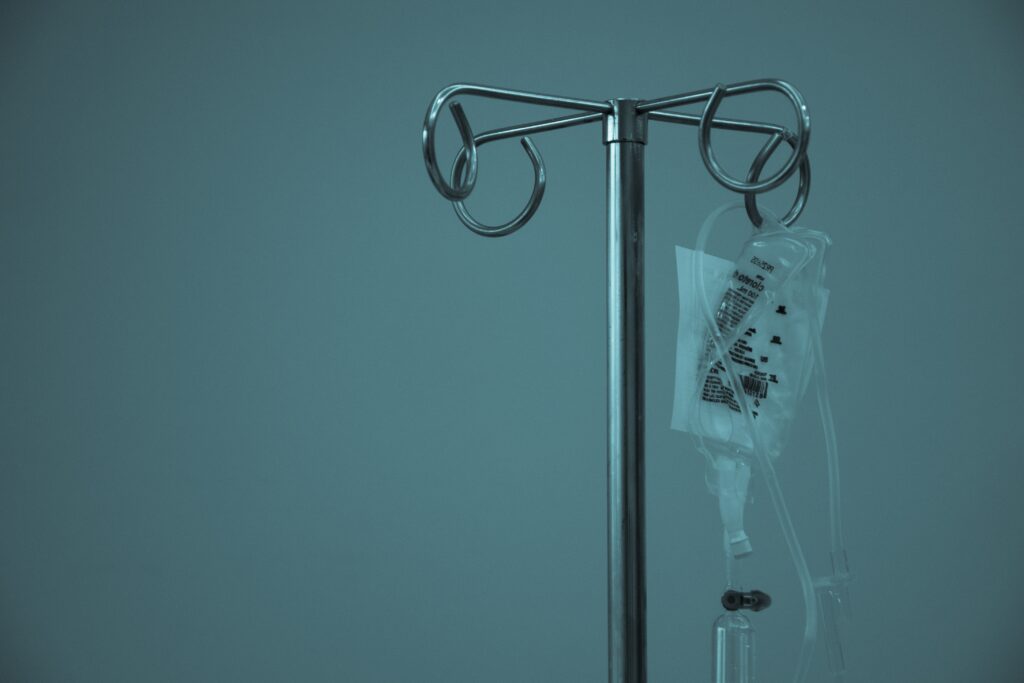Barbiturate overdose occurs when an individual takes a larger or more frequent dose than their body can physically handle. Overdose can be dangerous and should be treated immediately following any signs or symptoms that present that indicate a medical emergency.
If you or a loved one are struggling with barbiturate addiction and are worried it may lead to an overdose, treatment is available at a drug rehab center. Insurance often covers treatment, even for out of state addiction centers. It’s important that barbiturate overdose is prevented by addressing the root cause, which in most cases is addiction.
Need help getting addiction treatment?
What Are Barbiturates?
Barbiturates are a class of sedative medications that have been used for decades as hypnotics and anesthetics.
Commonly known barbiturates include:
- Phenobarbital
- Pentobarbital
- Secobarbital
- and Butalbital.
While barbiturate drugs are still used to manage certain medical conditions, they are less commonly prescribed today due to the high risk of dependence and addiction.
If misused, barbiturates can be extremely dangerous and potentially life-threatening. A barbiturate overdose can cause symptoms such as slowed breathing, disorientation, memory and concentration problems, fatigue, and slurred speech. The long-term effects of using barbiturates are not clear, however, it is known that chronic use can lead to physical dependence, addiction, and overdose.
It’s important to understand the risks associated with barbiturate use and to seek help immediately if you or someone you know is experiencing symptoms of a barbiturate overdose. This guide examines the following issues:
- What is a barbiturate overdose?
- What happens if you take an overdose of barbiturates?
- What is the most effective treatment of barbiturate overdose?

Barbiturate Overdose Symptoms
Barbiturates have a strong potential for abuse. The sustained use of this class of medication can result in the development of tolerance and physical dependence. When tolerance to barbiturates forms, many people start taking higher doses of the medication to achieve the initial barbiturates high. This form of barbiturate abuse will accelerate the development of dependence. If you become dependent on barbiturate drugs, withdrawal symptoms will present within 15 hours of discontinuing use.
Research shows that polysubstance abuse and barbiturate abuse are strongly associated. Those who primarily abuse alcohol or heroin often abuse barbiturates in combination. This type of polysubstance abuse significantly increases the risk of barbiturates overdose, commonly misspelled as “barbituate overdose”
The most common symptoms of barbiturate overdose may include any or all of the following:
- Shallow breathing
- Extreme fatigue
- Slurred speech
- Impaired judgment
- Loss of coordination
- Altered consciousness
- Coma
- Death
Additional complications associated with an overdose of barbiturates may include:
- Concussions and other injuries stemming from accidents or falls
- Pneumonia is triggered by the aspiration of fluid or food into the airways
- Miscarriage caused by damage to a developing fetus as a result of barbiturate abuse
Accidental Barbiturate Overdose
What is barbiturate overdose, then? An accidental barbiturate overdose can occur when someone takes too much of a barbiturate medication or takes it too frequently.
If left untreated, a barbiturate overdose can be life-threatening, as it can cause respiratory depression and lead to a lack of oxygen in the body. Treatment may involve supportive care, such as oxygen therapy, and medication to reverse the effects of the overdose. In severe cases, the person may need to be hospitalized and placed on a ventilator to help them breathe.
You should never take more than the prescribed dose of a barbiturate medication and avoid taking the medication more frequently than directed. It is also vital to never share barbiturate medications with others, as they can be dangerous if not taken as prescribed.

Barbiturate Addiction
Prolonged use of barbiturates can lead to the development of tolerance. When this happens, the medication’s effects are reduced, prompting many individuals to increase their dosage or frequency of dosing to achieve the desired effects. This raises the risk of overdose, which can be life-threatening in the case of barbiturates.
Furthermore, building tolerance and consuming larger amounts of barbiturates can accelerate the development of physical dependence. If you become reliant on barbiturates, you will experience unpleasant withdrawal symptoms if you attempt to reduce or stop using them.
Continued abuse of barbiturates can lead to addiction (sedative, hypnotic, and anxiolytic use disorder). Barbiturate addiction is characterized by compulsive drug use despite negative consequences.
Barbiturate addiction may arise from the sustained use of these drugs for legitimate medical purposes. However, barbiturates are often abused recreationally because they produce psychoactive effects similar to those of alcohol. People who misuse barbiturates may experience relaxation, happiness, decreased inhibitions, and increased talkativeness.
Abusing barbiturates by swallowing, snorting, or injecting them is dangerous and can lead to severe short- and long-term physical and psychological complications, including addiction and overdose, which can both be life-threatening.
Treatment for Barbiturate Addiction
The treatment for barbiturate addiction usually involves a combination of medication and behavioral therapy.
MAT (medication-assisted treatment) is a common approach used to manage withdrawal symptoms during detoxification. It involves the use of medications like benzodiazepines or other sedatives to reduce withdrawal symptoms and cravings while the body eliminates the barbiturates. These medications are then slowly tapered off to prevent the development of a new addiction.
Once detoxification is complete, behavioral therapy is an essential component of the recovery process. CBT (cognitive-behavioral therapy) is a widely used approach that helps individuals identify and change negative thought patterns and behaviors that contribute to addiction. It also helps individuals develop healthy coping mechanisms to deal with stress and triggers that can lead to relapse.
Other behavioral therapies that can be useful in treating barbiturate addiction include contingency management, which uses positive reinforcement to encourage drug-free behavior, and motivational interviewing, which helps individuals find their motivation to change their drug use behavior.
Support groups, such as 12-step programs like NA (Narcotics Anonymous), can also be helpful in maintaining sobriety and providing a sense of community and support.
A treatment plan for barbiturate addiction should be individualized and tailored to the specific needs of the person seeking treatment. If you seek help from qualified professionals, you can access comprehensive care throughout the challenging recovery process.

What Is Barbiturate Poisoning?
Barbiturate poisoning can occur when an individual takes too much of a barbiturate medication, whether by accident or intentionally. Symptoms of barbiturate poisoning can vary depending on the dose and can include:
- Slurred speech
- Drowsiness
- Confusion
- Impaired coordination
- Respiratory depression (slow, shallow breathing)
- Coma
- Barbiturate overdose death
If barbiturate poisoning is suspected, it is essential to seek immediate medical attention. Treatment will depend on the severity of the poisoning and may include:
- Basic life support measures, such as maintaining an open airway and ensuring adequate breathing and circulation.
- Activated charcoal to help absorb the drug in the stomach and prevent it from being absorbed into the bloodstream.
- Gastric lavage (stomach pumping) to remove the remaining barbiturates.
- Supportive care, such as oxygen therapy, mechanical ventilation, and medications to maintain blood pressure and prevent seizures.
- Intravenous fluids to maintain hydration and prevent dehydration.
- Admission to the ICU (intensive care unit) for close monitoring and advanced life support measures in severe cases.
- It is also important to identify and address the underlying cause of barbiturate poisoning. This may involve addressing issues related to addiction, misuse, or accidental ingestion. Education and counseling may also be necessary to prevent future incidents of barbiturate poisoning.
What Is Barbiturate Level 45?
The typical lethal blood level of barbiturates is 40 mcg/mL to 80 mcg/mL. This means that barbiturate level 45 may be life-threatening.
What Is The Barbiturate Overdose Treatment?
Drug overdose can happen to anyone, regardless of age, gender, or social status. Whether it’s a prescription medication, illegal drug, or over-the-counter medication, it can quickly become life-threatening. If you suspect someone is overdosing on barbiturates, it’s crucial to act fast and seek medical attention immediately.
First and foremost, call 911 right away. Barbiturate overdoses require medical intervention, as the symptoms can escalate rapidly, leading to severe complications and even death. Medical professionals can help treat the person and prevent further harm.
While waiting for emergency responders to arrive, stay with the person and keep them conscious. If they’re not breathing, perform CPR if you know how, or follow the 911 operator’s instructions on how to perform it.
Additionally, be prepared to provide information to the emergency responders. Tell them what drugs the person took and how much they used, along with any pre-existing health conditions that could complicate treatment. The more information you can provide, the better the medical professionals can help the person in need.
Barbiturate Antidote
There is no specific antidote for barbiturate overdose, but certain medications can be used to help reverse the effects of the drug and prevent life-threatening complications.
Barbiturate Overdose Medical Interventions
One of the primary treatments for barbiturate overdose is supportive care. This involves providing basic life support measures, such as ensuring adequate oxygenation, maintaining blood pressure, and supporting respiratory function, if necessary. In severe cases, the person may require mechanical ventilation to help them breathe.
Flumazenil, a medication used to reverse the effects of benzodiazepines, has been used in some cases to treat barbiturate overdose. However, its effectiveness in treating barbiturate overdose is limited and controversial.
In some cases, activated charcoal may be given to help absorb the drug and prevent it from being absorbed into the bloodstream. In rare cases, hemodialysis may be used to remove the drug from the body more quickly.
It is essential to seek immediate medical attention if you suspect that someone has overdosed on barbiturates. The sooner treatment is initiated, the better the chances of a positive outcome.
FAQs
What are the symptoms of barbiturate overdose to watch for?
If you’re concerned that you or a loved one are experiencing a barbiturate overdose, barbiturate overdose symptoms include confusion, drowsiness, slowed breathing, and passing out. Call 911 immediately if you suspect an overdose is occurring.
Is barbiturate overdose death common?
Statistics for barbiturate overdose death show that about 1 in 10 people who overdose on barbiturates experience a fatality. This is typically a result of heart or lung problems related to the overdose.
What should I do if someone is overdosing on barbiturates?
If someone is overdosing on barbiturates, it’s critical that you dial 911 immediately for emergency medical assistance. While waiting for help, try to keep the person awake and breathing, and do not leave them alone.

Get Treatment for Barbiturate Addiction at Renaissance Recovery
At Renaissance Recovery, we understand the struggles of addiction and mental health conditions. That’s why we offer comprehensive outpatient treatment programs tailored to your specific needs. You can access top-notch prescription drug rehab in California while still maintaining your daily routine.
Our addiction treatment programs include PHPs (partial hospitalization programs), IOPs (intensive outpatient programs), and dual diagnosis treatment programs for co-occurring disorders. Each program provides a variety of interventions, including medication-assisted treatment, psychotherapy, individual counseling, group therapy, family therapy, holistic therapies, and aftercare.We believe that the journey to recovery is a personal one, which is why we offer a luxury treatment facility where you can receive the care and support you need to start your recovery journey. Take the first step towards a brighter future by calling our admissions team today at 866.330.9449. You don’t have to fight addiction alone – let us help you today.



